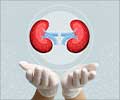Types of Donors
Living Related Donors:
A first-degree blood relative of a renal failure patient (father, mother, brother, sister) can donate a kidney to the recipient. But this person should not suffer from any condition that could increase the risk of complication following removal of the kidney. In addition, the quality of life of the donor should not be compromised in any case. These types of donors continue to constitute a majority of the donors due to the shortage of cadaver organs. This type of donation can be considered only when the donor has a satisfactory level of medical fitness. It is associated with better results (long term survival of the kidney failure patient) and lesser post-operative complications.
Living unrelated donors:
In order to meet the worldwide shortage of organs, it has now been accepted that a renal failure patient can receive a kidney from an unrelated donor such as spouse, adopted parent/child or a friend. It can only be permitted if it is medically and ethically acceptable. If better results can be expected, when compared to cadaveric organ donation, it is medically acceptable. It is ethically acceptable if an enduring relationship exists between the donor and recipient. When such a transplant is performed after careful evaluation, the results are comparable to live related transplant.


















